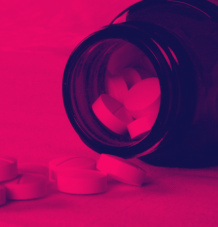Drug push questioned
 Experts say drug companies are aggressively targeting GPs with expensive educational events, urging them to push products that may not be the best.
Experts say drug companies are aggressively targeting GPs with expensive educational events, urging them to push products that may not be the best.
Researchers from the University of Sydney have analysed four years of Australian pharmaceutical industry-sponsored educational events for health workers dedicated to three conditions prone to overdiagnosis and overtreatment – depression, overactive bladder and osteoporosis.
Their study highlights the need for professional education to be free from commercial sponsorship.
“We examined over 3,000 events with almost 100,000 attendances by healthcare professionals, from October 2011 to September 2015,” says lead author Dr Barbara Mintzes.
“Just two companies sponsored over 70 per cent of the depression events we identified, another two companies sponsored over 80 per cent of overactive bladder events and two companies sponsored nearly 50 per cent of osteoporosis events.
“We are very concerned Australia’s transparency regulations are not robust enough to provide a full picture of the influence of such sponsorship.
“In most cases, the sponsors’ products are not considered the most cost-effective choices for the condition they purport to treat. In fact, several were considered unacceptable for PBS Reimbursement and others have been associated with cost, efficacy and safety concerns internationally.
“We also examined trends over time in sales and dispensing of lead sponsors’ relevant marketed drugs, but unfortunately could not assess causal links between increased prescribing and event attendance, as no information was publicly available on the identity of individual event participants,” Dr Mintzes added.
“Earlier this year we developed a new searchable database of transparency reports from Medicines Australia, the pharmaceutical trade association, to enable researchers, journalists and the public to more easily analyse the impact of pharmaceutical industry sponsored events on health professionals,” Professor Bero, from the Faculty of Pharmacy, said.
“As we dive deeper into these data, we are finding consistent and concerning levels of marketing aimed at healthcare professionals – concerning because we know marketing influences diagnoses and treatment, and, ultimately, people’s health.
“Pharmaceutical disclosure rules now also explicitly exclude food and beverages from reporting requirements, yet most sponsored events include both. Rather than seeing greater transparency around pharmaceutical marketing and its influences we are likely to experience less.
“In any case, transparency only gets us so far – a separation of education of our healthcare professionals from marketing activity is the ideal.”








 Print
Print